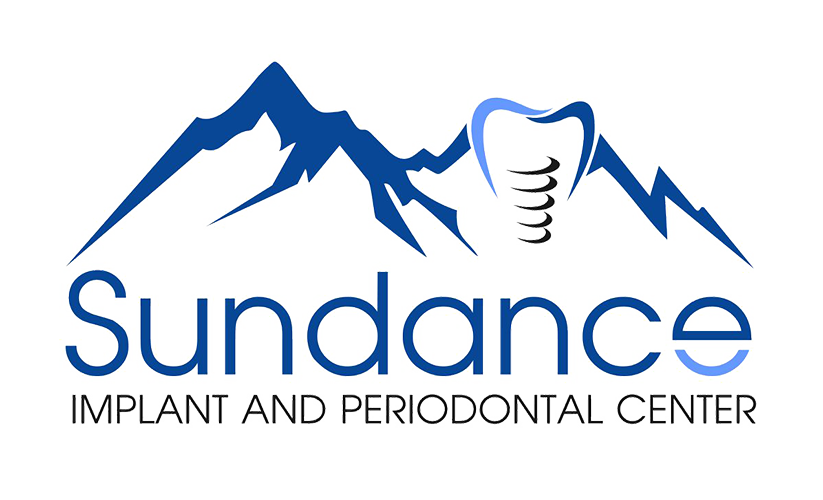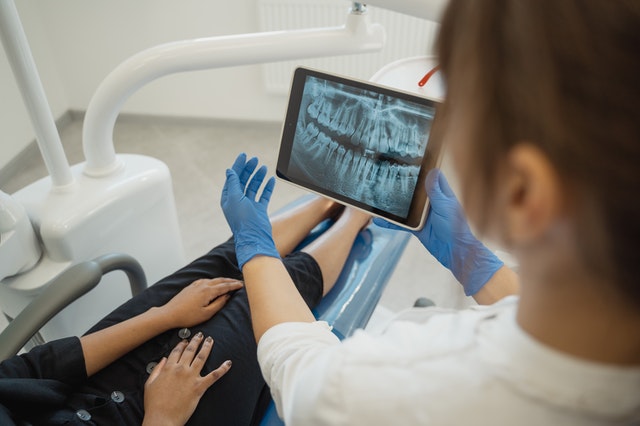Everyone has two arches in their mouths, a lower arch and an upper arch. The upper and lower teeth grow out of these arches and come together to create your bite. If most of your teeth are damaged or missing, your bite will be affected. Without a proper bite, you are likely to experience oral problems sooner or later.
Missing most or all of your teeth can also impact your confidence and ability to live a normal life. Without a complete set of teeth, your ability to chew, eat, and smile may be significantly compromised. Fortunately, there are dental restorations that can replace an entire arch of teeth. These restorations are known as full-arch restorations.
What is the purpose of a full-arch restoration?
A full-arch restoration utilizes three elements; prosthetic teeth (usually dentures), dental implants, and micro screws to secure the teeth. The prosthetic teeth are custom designed to look like your natural teeth and replicate their function. Additionally, dental implants prevent the prosthesis from shifting and causing discomfort and eliminate the need to use dental adhesives.
Who qualifies for a full-arch restoration?
Full-arch implants are an excellent tooth restoration option for people who:
Have lost most or all of their teeth
Are already wearing either partial or complete dentures and are looking for an alternative since their current dentures aren’t meeting their particular dental needs
Are using a prosthetic dental bridge
What does a full-arch restoration entail?
The process of getting full-arch implants typically involves two oral health professionals—your dentist and your oral surgeon.
To know if you qualify for a full-arch restoration, you will first need to visit your dentist for a consultation. During the appointment, your dentist will review your medical history and check the state of your teeth before determining the best restoration plan. If you qualify for a full-arch restoration procedure, your dentist will refer you to an oral surgeon.
Before the restoration procedure, your oral surgeon will examine your mouth and take 3D scans of your jaws and any remaining teeth. These scans will help the dental surgeon create a more accurate treatment plan. They will also discuss your options for anesthesia and give you detailed instructions for your pre- and post-operative care.
While the exact treatment plan will vary for each patient depending on their dental condition, the general procedure for a full-arch restoration is as follows:
- To begin, your oral surgeon will administer the appropriate anesthesia.
- They will then strategically place four or more dental implants beneath your gums. These implants will begin to fuse with your jawbone as you recover.
- Your surgeon will attach a temporary set of teeth to the implants to allow your jaw to completely heal and give time for the dental implants to integrate with your jawbone.
- Your dentist will then custom design your dentures to look like your natural healthy teeth.
- Once the design process is complete and your jaw is healed, your oral surgeon will install your new prosthesis, and you’ll be able to speak, eat, chew, and smile confidently.
Depending on your dental condition, you might be able to receive the final prosthesis on the same day the implants are placed. However, it is advisable to allow your jaw to heal completely and the implants to fuse successfully to the jawbone before adding more pressure to the surgical site.
What are the benefits of full-arch implants?
Full-arch implants offer various benefits over traditional tooth restoration procedures. Below are some of those benefits.
- Comfort. Your full-arch prosthesis will be custom-made to fit your mouth and will be secured in place by the implants to which are attached. Unlike traditional dentures, implant-supported dentures will not shift around to cause irritation or mouth sores.
- Restored function. Implant-supported dentures function like natural teeth, so there are no dietary restrictions.
- Improved oral health. When you experience tooth loss, you may also experience jawbone atrophy due to the lack of stimulation from the root system of the teeth. Dental implants fuse with the jawbone and act like natural roots to help retain bone mass.
- Natural-looking results. Full-arch restorations look and feel like natural teeth.
- Longevity. With proper oral care, your full-arch restoration can last for up to 15 years, sometimes longer. Traditional dentures, on the other hand, typically need to be replaced every few years.
Do you need full-arch implants in Provo?
Do you believe that full-arch implants are the right choice for you and are looking for a dentist in Provo?
At Sundance Implant and Periodontal Center, we offer a range of dental services to cater to our patient’s dental needs, and our board-certified periodontist specializes in individual and full-arch dental implants to restore the smiles of those missing many or all their natural teeth.
Call us today to schedule an appointment to discuss your restoration options.


